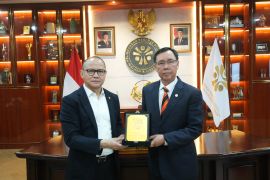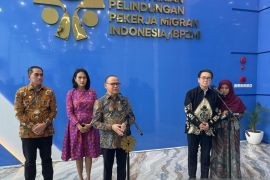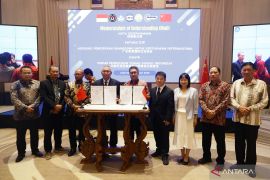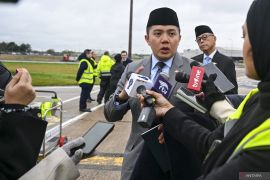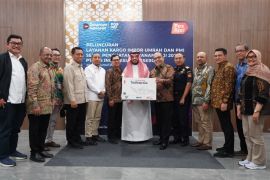In early 2025, the layoff trend has come under the public spotlight, signifying that businesses are currently facing tough challenges.
Based on data from the Ministry of Manpower, in 2024, there were 77,965 layoffs in Indonesia.
In a recent study, an analyst with the Parliamentary Analysis Center of the House of Representatives (DPR), Hartini Retnaningsih, predicted that in 2025, at least 280 thousand workers could potentially be laid off by 60 textile companies.
Some factors that could lead to layoffs include the increase in the value-added tax, limitations on government subsidies, and increases in the premiums of the national health insurance program of state insurer BPJS Kesehatan.
She suggested that the government prevent large-scale layoffs by making policies that support industries facing potential job cuts, revising provisions on layoff requirements, and creating import policies that do not harm local products.
It could also consider supporting the development of new markets at the international level, anticipating global geopolitical dynamics, and transforming the implementation of the Job Loss Guarantee program to make it effective and efficient, she said.
It has also been deemed necessary for Commission IX of the DPR to push the government to apply the right policies to ensure the continuity of businesses and good industrial relations as well as carry out supervision of employment development.
The Ministry of National Development Planning earlier reminded that the layoff trend is not merely an employment problem but could also increase the poverty rate and worsen economic inequality.
In this situation, it has become crucial for the government to devise a strategy to stem the rate of increase in the poverty rate while, at the same time, maintain the momentum of economic growth.
The root of the layoffs phenomenon is complex. On the one hand, labor-intensive industries are still trying to recover from external pressures, such as declining export demand due to weakening global purchasing power.
On the other, the digital sector and startups are experiencing a consolidation phase after an aggressive expansion period during the pandemic, leading to massive efficiencies.
If not anticipated properly, the wave of layoffs could suppress people's purchasing power and create a vicious cycle in which household consumption, the main contributor to growth, also gets eroded.
The government has the big task of ensuring that those affected by the layoffs do not slide into poverty.
One of the steps that have been taken to prevent this is strengthening social protection based on more accurate and adaptive data.
Social assistance programs such as the Pre-Employment Card, Wage Subsidy Assistance, and Job Loss Guarantee are important instruments to ensure that workers affected by layoffs can still meet their basic needs and have opportunities to improve their skills.
However, the challenge is not only about ensuring the continuity of those programs but also making them more effective and accurate.
Furthermore, the long-term policy that must be strengthened is accelerating the economic transformation so that dependence on sectors that are vulnerable to global shocks can be reduced.
According to chair of the Association of Strategic Socio-Economic Cadres (AKSES), Suroto, economic diversification is the main key. Indonesia cannot continuously depend on the export-oriented manufacturing industry, which is vulnerable to external fluctuations.
He said that domestic-based economic sectors such as the creative economy, modern agriculture, and high-quality tourism must be further optimized as new sources of growth.
This approach would not only create jobs that are more resistant to global turbulence but also bolster the competitiveness of the national economy in the long term.
The government has also understood that macroeconomic stability is the main foundation to face global uncertainties.
The steps that it has taken, such as keeping inflation under control, stabilizing the rupiah exchange rate, and ensuring staple goods are available at affordable prices, are important to protect the purchasing power of the community.
The right combination of monetary and fiscal policies can help businesses to continue growing without having to massively shrink their workforce.
Amid this challenge, the government remains optimistic that Indonesia can achieve a high economic growth of 8 percent.
The key to achieving this ambitious target is accelerating investment and innovation in the productive sector.
The ongoing bureaucratic reforms must be further bolstered so that the business licensing process becomes more efficient and legal certainty for investors becomes clearer.
Indonesia has huge potential in the downstreaming of natural resources, which, if handled with the right strategy, can become the main driver of higher economic growth.
Digitalization is also a determining factor. The digital economy has demonstrated its resilience in various crises, and Indonesia has great potential to become a major player in the region.
With more micro, small, and medium enterprise (MSME) players joining the digital ecosystem, the economic supply chains can be made more inclusive and open new opportunities for those affected by layoffs.
Economic connectivity
The government must ensure that access to digital infrastructure, financing, and digital literacy can reach more people in the country.
Another strategy that is no less important is accelerating the development of infrastructure that supports economic connectivity.
Investment in transportation, energy, and telecommunications infrastructure would not only help create jobs but also increase overall economic efficiency.
With better access to markets, it would be easier for business players in various regions to develop and generate more jobs.
However, what is most important is rebuilding the people's trust in the future of the economy.
Giving in to pessimism due to the threats of layoffs and economic slowdown would only worsen the situation and the uncertainties.
On the contrary, a more constructive approach by highlighting opportunities and concrete steps that have been and will be taken by the government can serve as an encouragement for the business communities and the public.
History has proved that Indonesia has extraordinary economic resilience. The 1998 monetary crisis, the 2008 global crisis, and the COVID-19 pandemic have shown that Indonesia's economy can recover from great pressure.
With the right policies and execution, high growth targets can still be achieved, while ensuring that people affected by layoffs still have the opportunity to bounce back and develop themselves.
This is not just a challenge, but also an opportunity to build a stronger, more inclusive, and more competitive economy in the future.
Related news: Govt to consider providing aid amid lay-off wave
Translator: Hanni Sofia, Raka Adji
Editor: Primayanti
Copyright © ANTARA 2025




